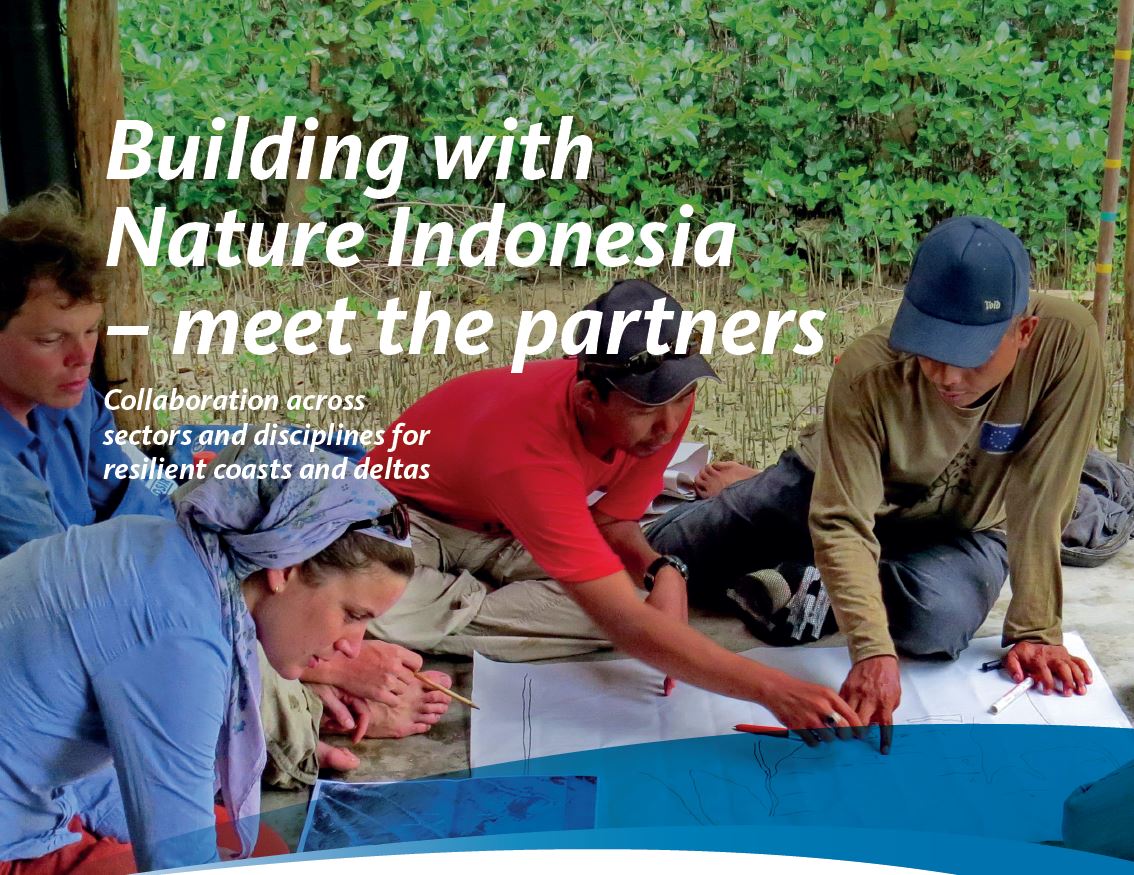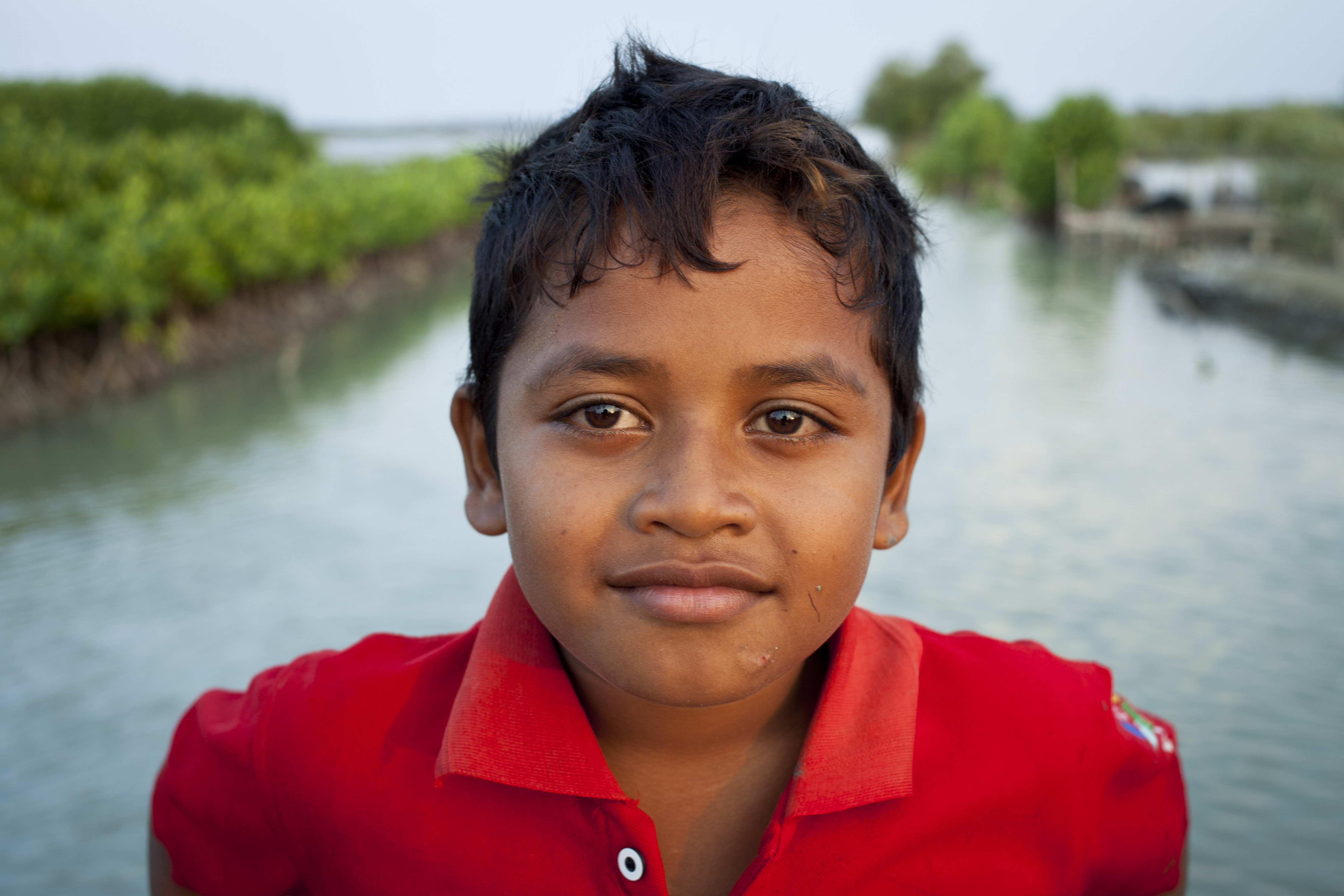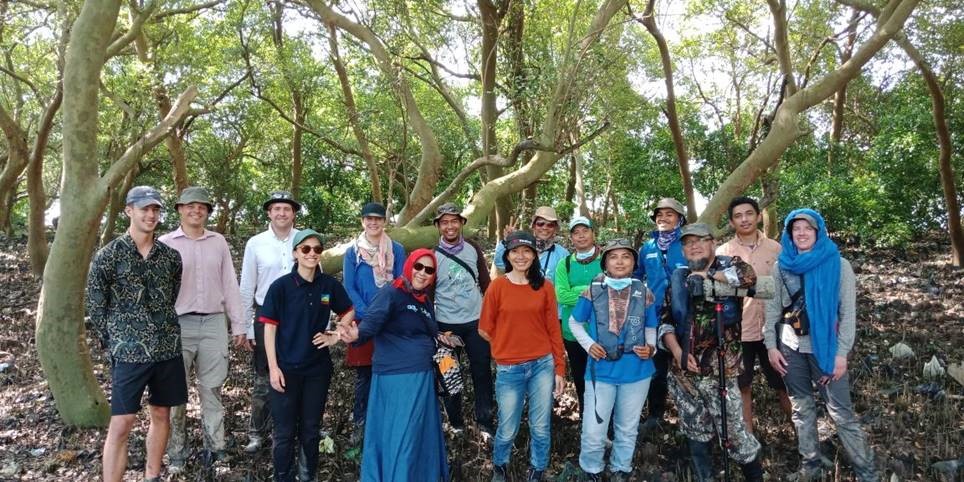Building with Nature Indonesia is implemented through a public private partnership and in close collaboration with communities in Demak. Each partner brings in specific knowledge, experience and skills and has a unique role within the project.

Demak communities: our local partners
By developing and implementing sustainable aquaculture practices together with the communities, one of the root causes of the mangrove deforestation is addressed and it gives a boost to the local economy. Communities restore and sustain the greenbelt they rely on for coastal safety. The measures will be governed under community bylaws and rooted in community development plans. The project shows that close engagement with local communities and other stakeholders, at all levels from design through to implementation, is vital to address root causes and to deliver community benefits.

Government agencies
Planning and implementation of measures in Demak takes place in alignment with field programmes of The Indonesian Ministry of Marine Affairs and Fisheries (MMAF) and the Indonesian Ministry of Public Works and Housing (MPWH). Both ministries are creating an enabling environment for implementation of Building with Nature nationwide. MMAF is the government body responsible for management of coastal and marine resources. MPWH is the government body responsible for technical and large infrastructure among which roads and coastal and river flood defences.
We are looking for alternative ways to solve our coastal erosion problems and are eager to collaborate in Building with Nature
Mr. Eko Rudianto, Indonesian Ministry of Marine Affairs and Fisheries:
Not-for-profit organisations
Wetlands International is managing the partnership, coordinates outreach and field based activities, empowers local communities, facilitates policy and stakeholder dialogue and contributes ecological expertise. Wetlands International is a not-for-profit global NGO. Its core activities are dedicated to maintaining and restoring wetlands for their environmental values as well as for the services they provide to society. Blue Forests is a not-for-profit Indonesian NGO dedicated to community based mangrove conservation and restoration. In this project, Blue Forests organizes coastal field schools to develop and implement aquaculture measures with communities. Kota Kita supports the project by facilitating citizen participation and collective action, and building bridges between citizens, government officials and their constituencies.
Knowledge institutes
Deltares and Wageningen Marine research (formerly IMARES) contribute and share knowledge on coastal ecology and geomorphology, and socio-economics. They are responsible for the design and monitoring of Building with Nature interventions. Deltares, TU Delft and UNESCO-IHE are coordinating our Building with Nature training programme. The University of Diponegoro (UNDIP) in Semarang contributes local system knowledge to the design and supports on the ground monitoring.
Consultancy and engineering firms
Witteveen+Bos is responsible for implementation of coastal safety engineering measures by Indonesian contractors and prepares the Business Case. Witteveen+Bos manages the development of the guidelines and facilitates project replication. Contractors in the Ecoshape consortium are Boskalis, a global services provider operating in the dredging, maritime infrastructure and maritime services sectors. Von Lieberman provides technical advice on the basis of experiences derived from a similar project in Vietnam. Van Oord is a leading international contractor, specialized in dredging, marine engineering and offshore projects.

Partners
Building with Nature Indonesia is a programme by Ecoshape, Wetlands International, the Indonesian Ministry of Marine Affairs and Fisheries (MMAF), and the Indonesian Ministry of Public Works and Housing (PU), in partnership with Witteveen+Bos, Deltares, Wageningen University & Research, UNESCO-IHE, TU Delft, Blue Forests, Von Lieberman and Kota Kita, with support from the Diponegoro University, and local communities.
